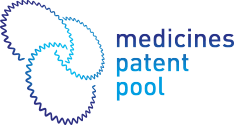MPP at the 22nd International AIDS Conference
Dates: 23 July 2018 - 27 July 2018
RAI Convention Center, Amsterdam
MPP staff members participated in several sessions during the 22nd International AIDS Conference.
2018 90-90-90 Targets Workshop – Saturday 21 July, 09:00-17:00
MPP speaker: Esteban Burrone
More information
Access presentation
Accelerating the development and uptake of the most needed drug formulations for children – Monday 23 July, 10:15-12:15
MPP speaker: Fernando Pascual
Access presentation
Treat the world: Working united across diseases for quality and affordable treatment for all – Tuesday 24 July, 14:30-16:00
MPP panellist: Charles Gore
MPP-GNP+ Community Consultation – Thursday 26 July, 14h-15h30
A community consultation was co-organised with the Global Network of People Living with HIV (GNP+) in the Global Village during the International AIDS Conference.
GNP+’s Alexandra Volgina and MPP’s Liudmila Maistat, co-chairs, opened the session, explaining that the purpose of this consultation was to hear from civil society representatives on the transition to new antiretrovirals as well as to allow participants to ask questions and share their experience.
Charles Gore then introduced himself as the new MPP Executive Director, acknowledging that the community is a key partner of the MPP. He welcomed feedback from the communities on the MPP’s work and looked forward to hearing on some of the challenges in making sure that MPP-licensed products reached people that need them.
In a short presentation, WHO’s Marco Vitoria described the profile of dolutegravir (DTG) and the reasons of having DTG-based first-line antiretroviral therapies (ARTs) as WHO’s preferred option for first line treatment. Marco also detailed the WHO statement on DTG potential safety issue and answered questions from the audience on this matter. He finally presented a WHO survey on the use of DTG. What came out of the report was that people wanted to be able to make informed choices when choosing their ART.
MPP’s Esteban Burrone then explained the MPP model and talked about the DTG licence and the way it enabled shorter access to generic DTG in low- and middle-income countries. He also shared data on countries where MPP licensees had already received approval for DTG and the combination tenofovir/lamivudine/dolutegravir (TLD), and countries where regulatory filings had already taken place.
A panel discussion followed with Alma de Leon representing Latin America, Morgane Ahmar representing Middle East and North Africa, Sergey Golovin representing Eastern Europe and Central Asia, Aditya Wardhana representing Asia, and Kenly Sikwese representing Africa.
They all described the current situation in their country/region regarding access to DTG and some of the main barriers that are being faced in their countries.
Finally, participants could ask questions to the speakers and panellists on issues relating to the transition to new ARVs in LMICs. Questions focused on regulatory issues, use of dual therapies, timing for availability of generic versions of other MPP licensed products, the potential impacts for some countries as they transition from donor funding, and on other procurement-related issues.







